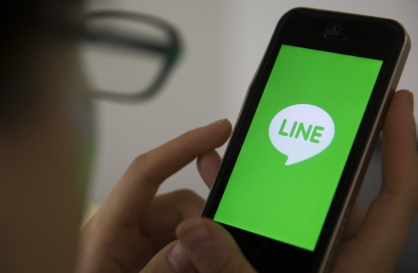Consumer prices in July rise at slowest pace in 10 months
By Park Hyung-kiPublished : Aug. 2, 2016 - 15:41
South Korea’s consumer price index rose 0.7 percent last month on-year, the slowest in 10 months, according to Statistics Korea on Tuesday.
Due to falling international oil prices, the inflation rate has remained in the zero percent territory over the last three months, well below the central bank’s target of 2 percent for 2016-2018.

In light of forecasts that global oil prices will decrease to around $30 per barrel on overcapacity rather than rebounding toward $50 later this year, it remains uncertain whether inflation will hit 1.1 percent as the Bank of Korea noted last month when it cut its growth outlook to 2.7 percent, along with its CPI expectations.
Given that Korea imports all of its oil resources for domestic production, falling oil prices will lead to a drop in manufacturing costs and the value of goods sold both at home and abroad. This will then lead to the CPI rising slower, even with low interest rates and fiscal stimulus.
The low oil prices have already unfavorably affected the country’s current account, which reached a record surplus of $12.17 billion in June, the biggest since the BOK began collecting the trade data in 1980.
If oil prices fall, say, around $10, the current account could see an increase of around $8 billion annually, according to the BOK.
With exports and imports falling on global overcapacity and decreasing demand beset by a slowdown, the central bank forecast that the surplus in 2016 will not likely extend its gain of over 100 billion from last year when the annual surplus reached $105.8 billion.
The central bank expects the surplus to reach $95 billion this year.
Contrary to overall zero percent inflation, consumer prices of everyday goods and services such as utilities, meat and vegetables increased in July, making it harder for the middle class to spend and consume.
Electricity fees increased 7.2 percent last month, compared to a year ago, while meat prices rose 17.3 percent, the highest gain since October last year when meat prices jumped 12 percent on-year. Prices of vegetables such as lettuce rose 47.6 percent.
The central bank lowered its outlook for consumer prices increasing 1.1 percent from 1.2 percent this year. Its overall inflation target for 2016-2018 is 2 percent, down from 2.5 percent-3.5 percent for 2013-2015.
“Sluggish domestic consumption and facility investment, along with higher unemployment, likely contained inflation,” Park Chong-hoon, the head of the Korea Economic Research at Standard Chartered Bank Korea, said in a report.
“With growth in Europe likely to slow post-Brexit, we think low inflation may persist, and the BOK’s inflation target of 2 percent for 2016-2018 is highly likely to be missed.”
By Park Hyong-ki (hkp@heraldcorp.com)
Due to falling international oil prices, the inflation rate has remained in the zero percent territory over the last three months, well below the central bank’s target of 2 percent for 2016-2018.

In light of forecasts that global oil prices will decrease to around $30 per barrel on overcapacity rather than rebounding toward $50 later this year, it remains uncertain whether inflation will hit 1.1 percent as the Bank of Korea noted last month when it cut its growth outlook to 2.7 percent, along with its CPI expectations.
Given that Korea imports all of its oil resources for domestic production, falling oil prices will lead to a drop in manufacturing costs and the value of goods sold both at home and abroad. This will then lead to the CPI rising slower, even with low interest rates and fiscal stimulus.
The low oil prices have already unfavorably affected the country’s current account, which reached a record surplus of $12.17 billion in June, the biggest since the BOK began collecting the trade data in 1980.
If oil prices fall, say, around $10, the current account could see an increase of around $8 billion annually, according to the BOK.
With exports and imports falling on global overcapacity and decreasing demand beset by a slowdown, the central bank forecast that the surplus in 2016 will not likely extend its gain of over 100 billion from last year when the annual surplus reached $105.8 billion.
The central bank expects the surplus to reach $95 billion this year.
Contrary to overall zero percent inflation, consumer prices of everyday goods and services such as utilities, meat and vegetables increased in July, making it harder for the middle class to spend and consume.
Electricity fees increased 7.2 percent last month, compared to a year ago, while meat prices rose 17.3 percent, the highest gain since October last year when meat prices jumped 12 percent on-year. Prices of vegetables such as lettuce rose 47.6 percent.
The central bank lowered its outlook for consumer prices increasing 1.1 percent from 1.2 percent this year. Its overall inflation target for 2016-2018 is 2 percent, down from 2.5 percent-3.5 percent for 2013-2015.
“Sluggish domestic consumption and facility investment, along with higher unemployment, likely contained inflation,” Park Chong-hoon, the head of the Korea Economic Research at Standard Chartered Bank Korea, said in a report.
“With growth in Europe likely to slow post-Brexit, we think low inflation may persist, and the BOK’s inflation target of 2 percent for 2016-2018 is highly likely to be missed.”
By Park Hyong-ki (hkp@heraldcorp.com)










![[Weekender] How DDP emerged as an icon of Seoul](http://res.heraldm.com/phpwas/restmb_idxmake.php?idx=644&simg=/content/image/2024/04/25/20240425050915_0.jpg&u=)

![[Today’s K-pop] NewJeans' single teasers release amid intrigue](http://res.heraldm.com/phpwas/restmb_idxmake.php?idx=644&simg=/content/image/2024/04/26/20240426050575_0.jpg&u=)





![[Herald Interview] Mistakes turn into blessings in street performance, director says](http://res.heraldm.com/phpwas/restmb_idxmake.php?idx=652&simg=/content/image/2024/04/28/20240428050150_0.jpg&u=)
